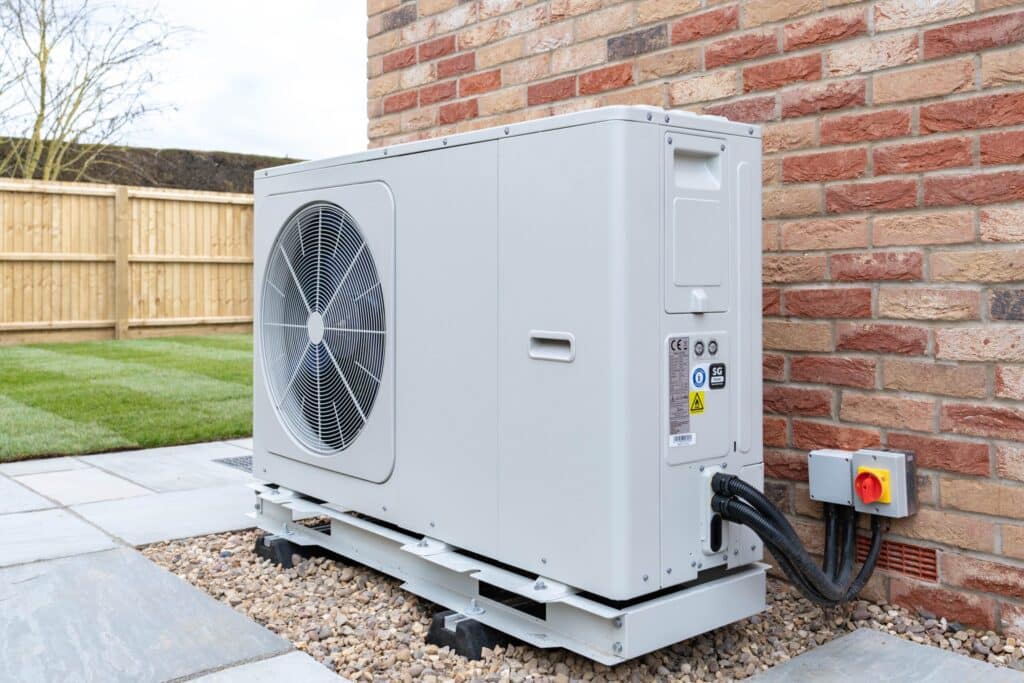As temperatures start climbing during the summer months, homeowners begin to rely on their air conditioning (AC) units to stay comfortable. However, with increased usage comes increased energy bills, leading many homeowners to question whether they should turn their AC off when they’re not home.
There are valid arguments on both sides of this debate, so let’s dive in and explore the benefits of turning your AC off when you’re not home and the potential disadvantages.
Benefits of Turning Your AC Off When You’re Not Home
The most important factor in deciding whether or not to turn your AC off is who else is in the home. If you’re leaving an empty house, then there’s no concern. However, if you have pets there, then consider their health and comfort as well. If you can’t turn your AC off, you may be able to turn it up instead. The general benefits of turning the temperature up include:
Energy Savings: The primary benefit of turning off your AC when you’re not home is that you’ll conserve energy and that can save you money on your energy bill. According to the Department of Energy, you can save up to 10% per year on your energy bill by turning your thermostat back 7-10°F for 8 hours a day.
Extended Lifespan of Your AC: Running constantly puts a lot of strain on the unit, causing it to wear out faster. If you turn off your AC when you’re not home you can reduce the amount of wear and tear on the unit, which can help it last longer. Regardless, every home needs regular AC services to keep the unit running smoothly.
Disadvantages or Risks of Turning Your AC Off When You’re Not Home
Increased Humidity: When you turn your AC off, your home’s humidity levels can rise, which leads to discomfort and potential health risks. High humidity can create a breeding ground for mold and other allergens, affecting indoor air quality. In turn, that can be harmful to your health.
Increased Temperature: Turning off your AC can also cause the temperature in your home to rise, making it uncomfortable to return to when you arrive home. This can also cause your AC to work harder to cool your home down, potentially negating the energy savings you might have gained.
If you’re willing to come home to a warmer home to save money on your energy bill, then turning the AC off might be the right choice. It may also be the best option if you plan to be gone for an entire week or weekend, rather than a few hours a day. Turning the unit on and off puts additional strain on it. You can minimize the wear and tear by only turning your AC off when you plan to be gone for an extended period of time.
However, if you’re concerned about increased humidity, potential damage to your home, or returning to an uncomfortably warm house, turning your AC up and leaving it running might be a better option. It will help you conserve energy while also preventing an accumulation of humidity.
If you do decide to turn off your AC when you’re not home, there are steps you can take to reduce the risks associated with increased humidity and temperature. For example, you can install a smart thermostat that lets you control your home’s temperature remotely. This way, you can set your thermostat to start cooling your home before you arrive back, ensuring that your home is cool and comfortable when you walk in the door.
Turning off your AC doesn’t have to be uncomfortable. Raising it by only 2 degrees will save you approximately 5% on your energy bill, and helps reduce wear and tear on your unit. In general, you should have your HVAC system serviced and tuned up at least once a year. To learn more about Essig and our AC services, give us a call at 610-557-3302.

